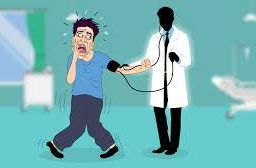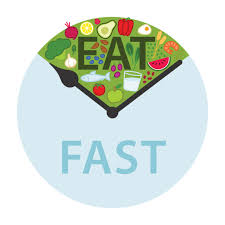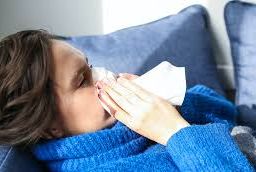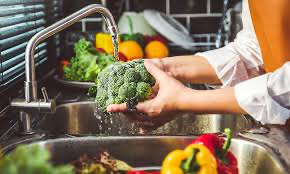
Food Safety Tips for Eating Out and Ordering Takeout
Ensuring safe food handling is crucial for protecting yourself and your loved ones from foodborne illnesses. By understanding the risks and implementing proper practices, you can enjoy meals with confidence, whether cooking at home or dining out. Let’s explore essential tips to prioritize food safety in every kitchen.
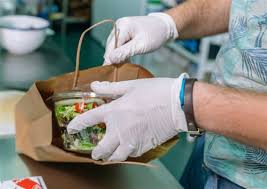
Food is a universal pleasure, bringing joy and nourishment to our lives. However, ensuring that the food we consume is safe is a critical responsibility. Foodborne illnesses can have severe consequences, ranging from mild discomfort to life-threatening conditions. In this post, we’ll dive into the world of food safety, uncovering essential tips and practices to safeguard ourselves and our loved ones from potential hazards. Let’s embark on a journey to raise awareness and promote a culture of food safety.
The Hidden Dangers: Understanding Foodborne Illnesses:
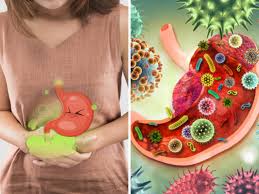
Foodborne illnesses are infections or intoxications caused by consuming contaminated food or beverages. Here are some key points to understand:
a) Bacterial Culprits: Bacteria such as Salmonella, E. coli, and Campylobacter are common causes of foodborne illnesses. These bacteria can multiply rapidly in certain conditions, leading to illness when ingested.
b) Viral Villains: Viruses like norovirus and hepatitis A can also contaminate food and cause widespread outbreaks. These viruses are highly contagious and can spread easily in environments like restaurants or communal settings.
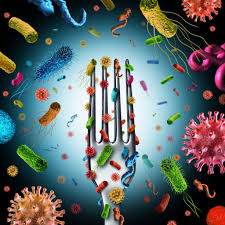
c) Parasitic Intruders: Parasites like Giardia and Cryptosporidium can be present in contaminated water or improperly cooked food, causing gastrointestinal infections.
d) Toxin Trouble: Toxins produced by bacteria, such as those produced by Staphylococcus aureus or Clostridium botulinum, can contaminate food and cause illness when ingested.

Safe Food Handling: Tips to Keep Foodborne Illnesses at Bay:

Preventing foodborne illnesses starts with proper food handling and preparation. Here are some essential practices to follow:
a) Cleanliness is Key: Wash your hands thoroughly with soap and water before handling food, especially after using the restroom, handling raw meat, or touching surfaces that may be contaminated. Clean and sanitize kitchen surfaces, utensils, and cutting boards regularly.
b) Separation is Essential: Prevent cross-contamination by keeping raw meats, poultry, seafood, and eggs separate from other foods. Use separate cutting boards and utensils and never reuse plates or utensils that have come into contact with raw products.
c) Cook with Care: Ensure that food is cooked to the appropriate internal temperature to kill harmful bacteria. Use a food thermometer to verify the doneness of meat, poultry, and seafood. Avoid consuming undercooked or raw eggs and meats.
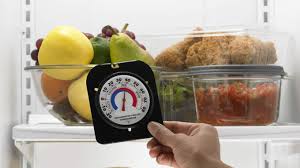
d) Chill Promptly: Refrigerate perishable foods promptly to prevent bacterial growth. Keep the refrigerator temperature at or below 40°F (4°C) and discard any perishable food that has been left at room temperature for more than two hours.
e) Mind the Expiry Dates: Check expiration dates on food products and discard any that have passed their prime. Avoid consuming expired or moldy foods, as they may contain harmful bacteria or toxins.
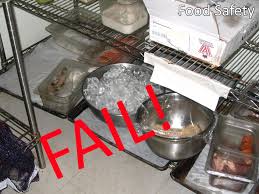
Eating Out Safely: Tips for Dining in Restaurants:
While cooking at home gives you more control over food safety, dining out can still be a pleasant and safe experience. Consider these tips:
a) Choose Reliable Establishments: Opt for restaurants with good hygiene practices and proper food handling certifications. Look for high cleanliness ratings and positive customer reviews.
b) Fresh and Well-Cooked: Select dishes that are freshly prepared and cooked to the appropriate temperature. If unsure about the safety of a particular dish, ask the restaurant staff for clarification.
c) Handle Leftovers with Care: If you have leftovers, refrigerate them promptly and consume them within a safe timeframe. When reheating, ensure that the food reaches a steaming hot temperature throughout.

Stay Informed: Educate Yourself and Others:
Staying informed about food safety is crucial for maintaining a healthy and safe dining experience. Here are a few ways to educate yourself and others:
a) Stay Updated: Keep yourself informed about food recalls, outbreaks, and safety guidelines issued by reputable health organizations. Stay connected with reliable sources such as government health agencies or food safety websites.
b) Share Knowledge: Spread the word about food safety to your family, friends, and community. Share helpful tips, recipes, and resources that promote safe food practices. Encourage others to prioritize food safety in their daily lives.
c) Involve Children: Teach children about proper handwashing, safe food handling, and the importance of avoiding cross-contamination. Engage them in age-appropriate activities and discussions that promote food safety awareness.
d) Attend Workshops or Classes: Consider participating in food safety workshops or culinary classes that focus on safe food handling and preparation. These opportunities can provide valuable insights and practical skills for maintaining food safety at home.

Food safety is a shared responsibility that demands our attention and diligence. By understanding the risks associated with foodborne illnesses and adopting safe food handling practices, we can protect ourselves, our loved ones, and our communities from unnecessary harm. Let’s prioritize cleanliness, proper cooking techniques, and informed decision-making when it comes to the food we consume. Together, we can create a culture of food safety, ensuring that every meal is a cause for celebration rather than concern. Cheers to safe and enjoyable dining experiences for all!
Disclaimer: The information provided in this content is for general informational purposes only. It is not intended as medical or healthcare advice, diagnosis, or treatment. Always seek the advice of a qualified healthcare professional with any questions you may have regarding a medical condition or healthcare decisions.


